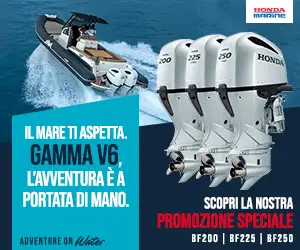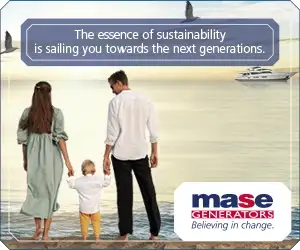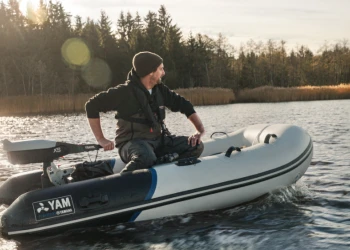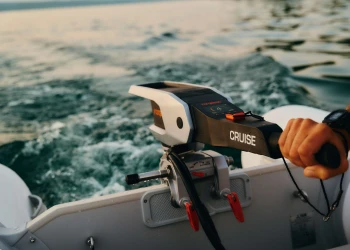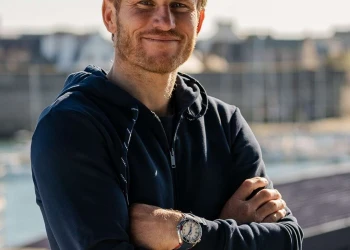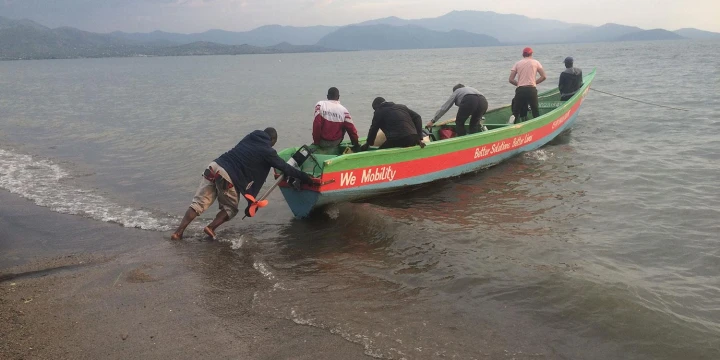
The fishermen take to the lake in the evening to catch omena, aka Lake Victoria sardines.
Torqeedo: A shining example - electric mobility on the water
Two to three hours was all Joshua Miruka needed to revolutionize his everyday work. Even well over two years later, he can still vividly remember the day he was the first fisherman to motor across Lake Victoria in an electric boat. It was September 27th, 2017, at Sienga Beach in Mbita, a small Kenyan town of 6,000 inhabitants. People had come from near and far to see how the new technology worked. Could it keep pace with the petrol-powered two-stroke outboards used by more than 50,000 boats on Lake Victoria?
Joshua Miruka did the first test run. A Torqeedo Cruise motor and battery were installed in his 13-metre wooden boat, Rooney, named after the football star Wayne Rooney. Curious eyes followed his every step. After casting off, Miruka noticed how much faster the boat was responding. After a few test circuits of the bay, he sailed away from the coast into the deeper waters of the lake and revved up the motor. “I immediately noticed how quiet it is,” Miruka recalls.
But that isn’t the only thing that delights the 40-year-old fisherman who now owns two boats. “I also think it’s important that electric motors are good for the environment,” he says. “With the old combustion engines we’re just polluting the air, and fuel and oil are constantly leaking into our lake. We’re poisoning the fish and our drinking water. Things can’t go on like that.” For Miruka it wasn’t just a one-off test run. He joined the unique project initially as a tester, then as a customer, and now as an employee.
76% of fish species threatened by extinction
The goal is to massively reduce the negative effects of petrol engines on the world’s second-largest freshwater lake. Lake Victoria, which borders on Kenya, Uganda and Tanzania, is about as big as Ireland and home to over 200 species of plants and animals not found anywhere else in the world. But this eco-system is in danger, with 76% of the fish species threatened by extinction. The livelihoods of 30-50 million people who, directly or indirectly, are dependent on the lake are also acutely threatened.
Overfishing is one reason for the alarming state of the lake. Another is massive pollution. Farms and open sewers contribute to the problem by discharging chemicals into the lake. But the 50,000 fishing boats are also a factor. As they crisscross the lake, their rattling 10-15 HP two-stroke outboards emit pollutants and CO2. Repairs and maintenance work are usually carried out on the beach, and unfiltered oil frequently leaks into the water. As a result, they are not only poisoning the fish but also endangering themselves. After all, Lake Victoria is the main source of drinking water in the coastal regions.
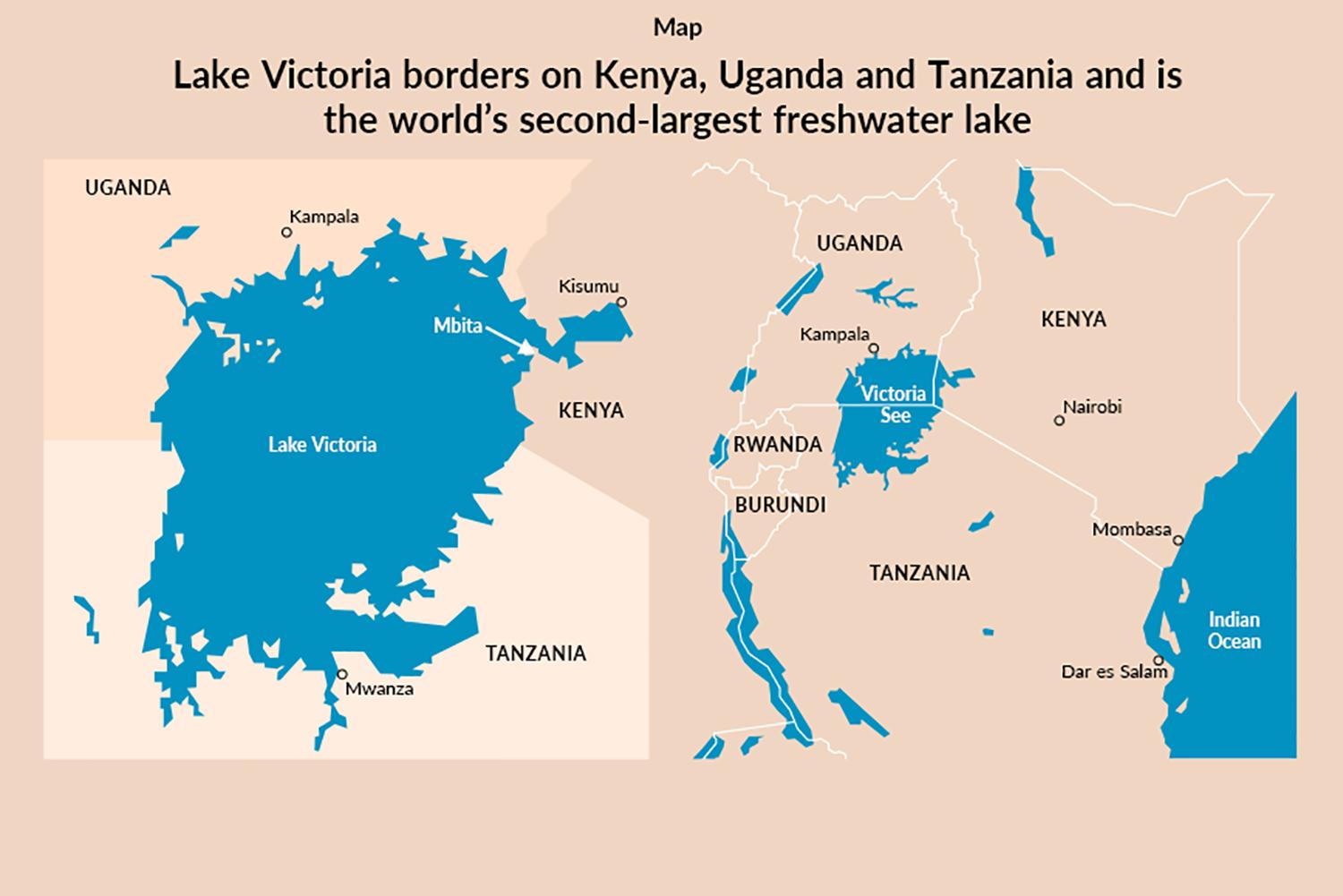
This is precisely the situation ASOBO wants to change. The Mbita-based firm set up in 2019 by Laurens Friso and Wolfgang Gregor, together with Persistent Energy, a venture builder. This start-up wants to persuade as many as fishers as possible to switch to high-tech electric motors. That is easier said than done in a country where the gross average monthly wage is just under €500. So they developed an innovative leasing model in which ASOBO purchases Cruise 4.0 T motors with a propulsive power equivalent to a 9.9-HP outboard and rents them out to the fishermen.
ASOBO also trains the fisherman and his crew on how to operate the new electric drive efficiently, charges the 3.5 kWh Torqeedo Power 24-3500 batteries and provides back-up service in case anything goes wrong. Every morning when the fishermen sell their catch on the beach, an ASOBO employee picks up the batteries on his electric-powered workbike and takes them to a solar power station not far away. In the late afternoon, before the boats set out again, the batteries are back on board.
The goal: 20-25% cost advantage
Motivating fishers to switch to ASOBO is not just banking on their environmental awareness or providing convenience – there’s also an economic upside. The rental fee for the e-motors is 20-25% less than the monthly expense of running a petrol-powered outboard. “Everywhere around the world, people like saving money, but in low-income countries like Kenya it is even more important,” says ASOBO’s co-founder Laurens Friso. The monthly fee depends on the boat, how far it travels, and the current price of petrol.
ASOBO thoroughly analyzed the everyday work of the Kenyan fisherman before its launch in February 2020. Where do they catch the fish? How powerful does the motor have to be? Are there any specific challenges? Since the very first test run from Sienga Beach, Torqeedo has been part and parcel of the project. Gregor Papadopoulos, Torqeedo Sales Manager Central Europe and Projects EMEA, has been very active on the continent of Africa for years and traveled to Kenya twice to see for himself what the situation was like and provide invaluable training to the ASOBO team.
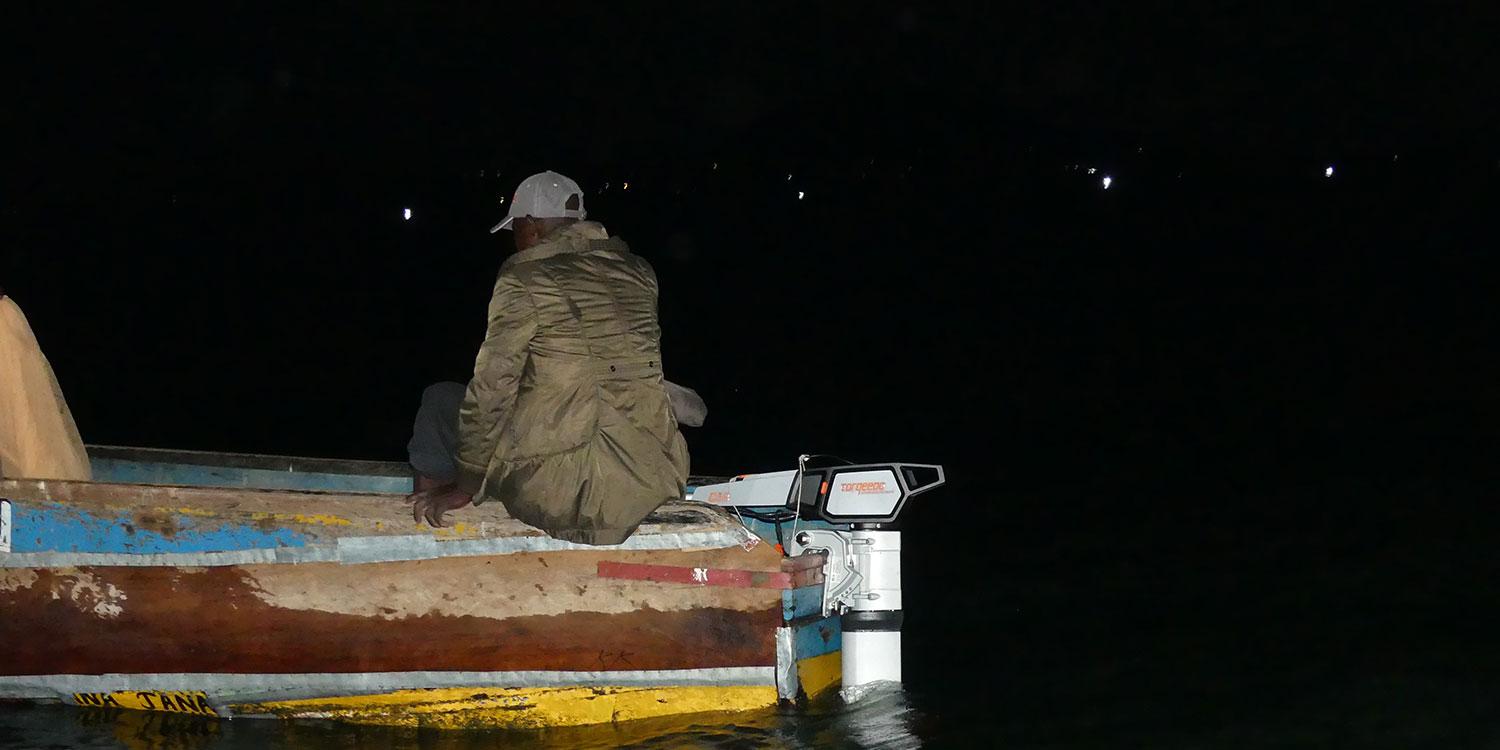
He went out at night with the fishermen and saw how they caught omena, the tiny fish also known as Lake Victoria sardines. Omena, the main catch for these fishermen, are either dried in the sun, cooked in local kitchens or turned into animal feed. Typically, four fishermen per boat set out at dark and arrive at the fishing grounds in one to three hours. There, they float lanterns on the lake to attract small flies, the favourite food of the omena, and then cast their nets.
The floating lights on the pitch-black lake are a spectacular sight but held a hidden dark side. Until recently, most of the lanterns burnt kerosene, which often spilt into the lake. Now, more and more fishers use solar-powered lamps – clear proof that new technologies can help give old traditions a sustainable future. After an hour or two, the fish come to the surface to catch the mosquitos. The fishermen pull up their nets, an energy-sapping and complicated operation in which every move has to be absolutely right.
“An application perfectly suited to our engines,” says Gregor Papadopoulos. The efficient, narrow hulls of the fishing boats glide over the water. The batteries supply plenty of power for the long trips to the fishing grounds, and the onboard computer with its integrated GPS range calculator tells the fishermen, second for second, exactly how much range they have left. What’s more, the quiet electric motors make the actual job of fishing a more pleasant task, and the fishermen can also manoeuvre their boats much more precisely. Without the noisy petrol outboards, the fishermen can easily understand the commands they shout to each other and listen to the radio while waiting for their catch.
First MBITA, then the whole world?
After Rooney, Joshua Miruka equipped his second boat, Messi, with a Cruise 4.0 T drive system. “We think we’ll be able to supply up to 500 fishermen from Mbita soon,” Laurens Friso says. Additional rental and charging stations around the lakeshore are in the works. The long-term plan is to expand to other continents. “I hope that in a few years our business model will not just be working on Lake Victoria but in emerging markets all over the world,” Laurens adds. “For example, in island-rich South-East Asian countries like Indonesia or the Philippines.”
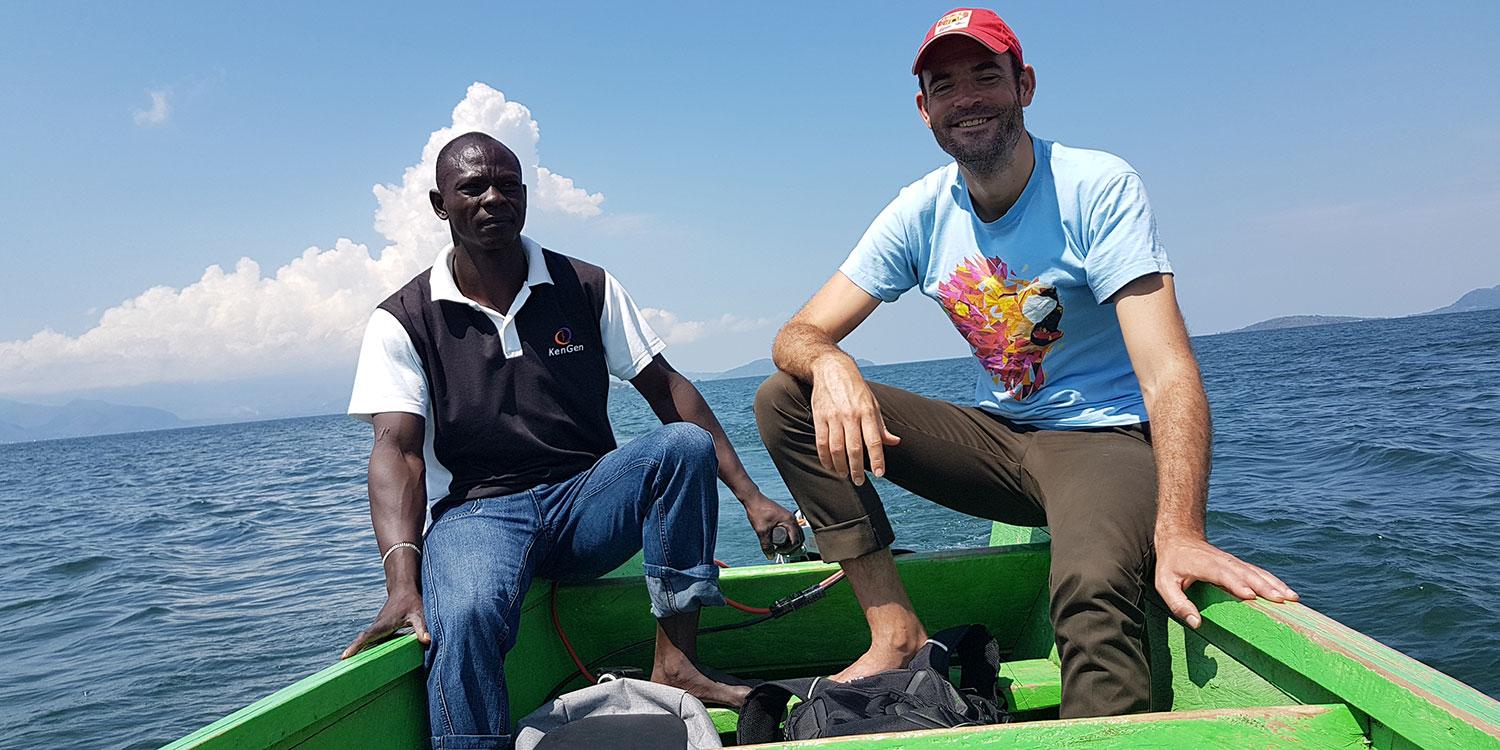
Torqeedo sees things similarly. “The aim is to have several thousand e-outboards on Lake Victoria in a few years,” says Gregor Papadopoulos. “I’m assuming that by 2040 there won’t be a single petrol-powered motor on Lake Victoria.” Papadopoulos has received enquiries from Uganda and Senegal, and Torqeedo is already equipping fishers with fully electric motors on the Cape Verde Islands and in South America.
Fisherman Joshua Miruka is now one of ASOBO’s eight employees. His job is to win new customers and run workshops about the project. Earlier this summer, the first fishers were out in Torqeedo-powered boats. Community interest is high, and the project got off to a good start though the coronavirus pandemic caused some delays. Miruka is convinced that nothing can stand in the way of e-mobility’s triumphant progress, not even an epidemic. “We simply need to be patient,” he said in a phone interview. “Things will keep on getting better.”
